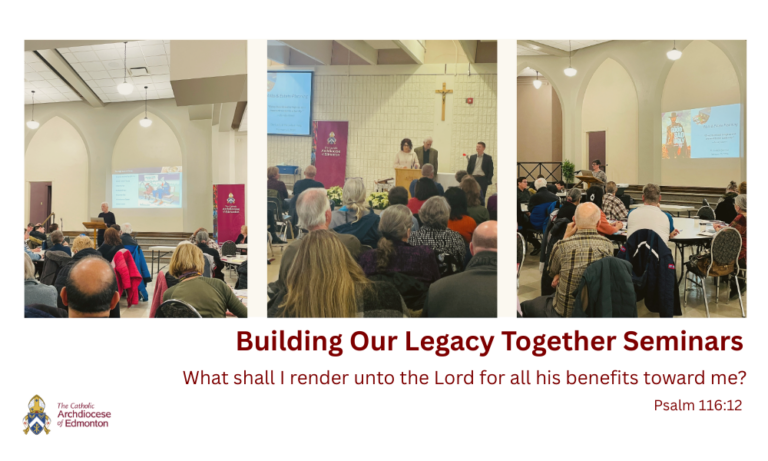The creation stories from the book of Genesis tell us a lot about what it means to be human. We read in Genesis 1:26-27 that human beings are created in the image of God. We are the only being that God made in His image, and as such we are the only creatures who are “capable of knowing and loving (our) Creator” (Gaudium et Spes 12). We also read in Genesis 2:18 that the man was alone until God created a suitable match for him, one he is finally able to give himself to in a relationship of selfless love. That ability to love is another way in which we are distinct. St. John Paul II explained that “…the love of husband and wife is a unique participation in the mystery of life and of the love of God Himself” (Familiaris Consortio 29). This is the starting point for a proper Christian understanding of sexual intimacy:
“God created man as male and female. He created them for each other and for love. He created them with erotic desires and the ability to experience pleasure. He created them to transmit life.” -YouCat 400
 The love between husband and wife was not designed be self-centered or just to be about sensual pleasure. It also isn’t a utilitarian action that simply exists to preserve our species. Sexual intimacy is a good, beautiful, and wonderful thing:
The love between husband and wife was not designed be self-centered or just to be about sensual pleasure. It also isn’t a utilitarian action that simply exists to preserve our species. Sexual intimacy is a good, beautiful, and wonderful thing:
“A person can give someone else no greater gift than himself. ‘I love you’ means for both: ‘I want only you, I want all that you are, and I want to give myself to you forever!’ Because that is so, we cannot, even with our bodies, really say ‘I love you’ on a temporary basis.\’” -YouCat 407
But, like any good and powerful thing, sexual intimacy can also be misused. The commandment regarding adultery is first concerned with the ways in which we might misuse this great gift. And so we speak of the need to keep sex in the context of love:
“Sexuality must not be separated from love; they must go together. The sexual encounter requires the framework of a true, dependable love.” -YouCat 403
It is for this reason that the Church believes sexual intimacy is exclusively meant to be shared in the context of sacramental marriage. To enter a sexual relationship with another is to bind oneself to another, saying bodily what a bride and groom say out loud on their wedding day: “I take you to be my husband/wife. I promise to be true to you in good times and in bad, in sickness and in health, I will love you and honor you all the days of my life.” Marriage is a covenantal bond which is professed before God, our family, and our friends, and is sealed by the act of sexual intercourse.
And it’s with this in mind that we consider the sixth commandment: you shall not commit adultery.
Whatever the Church will say about any sexual sin comes down to the idea that they somehow fall short of this vision. Let me be as clear here as I can: the Church is in no way against love or against sexuality. There is no area of Church teaching (in this area or otherwise) which exists because either God or the Church have it in for us or don’t understand the powerful draw of sex. God created sex, so of course He understands it! What He doesn’t want is for us to misuse such a valuable gift.
When we hear the commandment about adultery, what likely comes to mind is “once you’re married, don’t cheat on your spouse.” While that’s part of the equation, a more complete way of understanding it is “don’t do anything sexual with someone who is not your spouse.” It doesn’t matter if you’re married or not, if you’ve met the person or not, if you’re dating, or even if you’re engaged. When we miss the mark here, we commit “a serious offense against charity; it harms the dignity of the person and fails to recognize the meaning of human sexuality” (YouCat 410), as well as a “fundamental betrayal of love, the violation of a covenant that was made in God’s sight, and an injustice to one’s neighbor” (YouCat 424).
This is the one commandment which, once broken, causes many people to go to great lengths to either justify or to hide what they’ve done. You’ll find many examples of this in scripture. We read about many good and God-loving people who were felled by their sexual weakness, the most famous of which is probably King David of Israel. David is described as a man after God’s heart (1 Samuel 13:14), but later lied, manipulated, and eventually murdered to cover up his affair with Bathsheba, who was the wife of one of his soldiers (2 Samuel 11). Other important figures from scripture who struggled with sexual purity include Solomon, Samson, and Abraham. These can remind us of three very important lessons. First, that God works with imperfect people, so we fit right in. Second, these failures are not what he created men, women, love, marriage, and sexuality for. Finally, we see how David, Solomon, Samson, Abraham and others turn from this sin and back towards God. We are invited to do the same.
You are made in the image of God with an incredibly powerful capacity to love others. One way to love is by the act of sexual intimacy. But as the saying goes “with great power comes great responsibility,” and a healthy, good, and truly fulfilling experience of our sexuality is lived within the intention God has had for it. No matter what your state in life might be, this involves cultivating the virtue of chastity. Chastity is defined by YouCat as “the virtue by which a person who is capable of passion deliberately and resolutely reserves his erotic desires for love and resists the temptation to find lewd images in the media (pornography) or to use others as a means to achieving his own satisfaction.”
This is the challenge – and the greatness – to which all of us are called.
-This is part of a series on the Youth Catechism. Mike Landry is Catholic Youth Camp director for the Archdiocese of Edmonton. He is also chaplain for Evergreen Catholic Schools, serving 10 schools west of Edmonton. Mike and his wife Jennifer live in Stony Plain with their five children.




